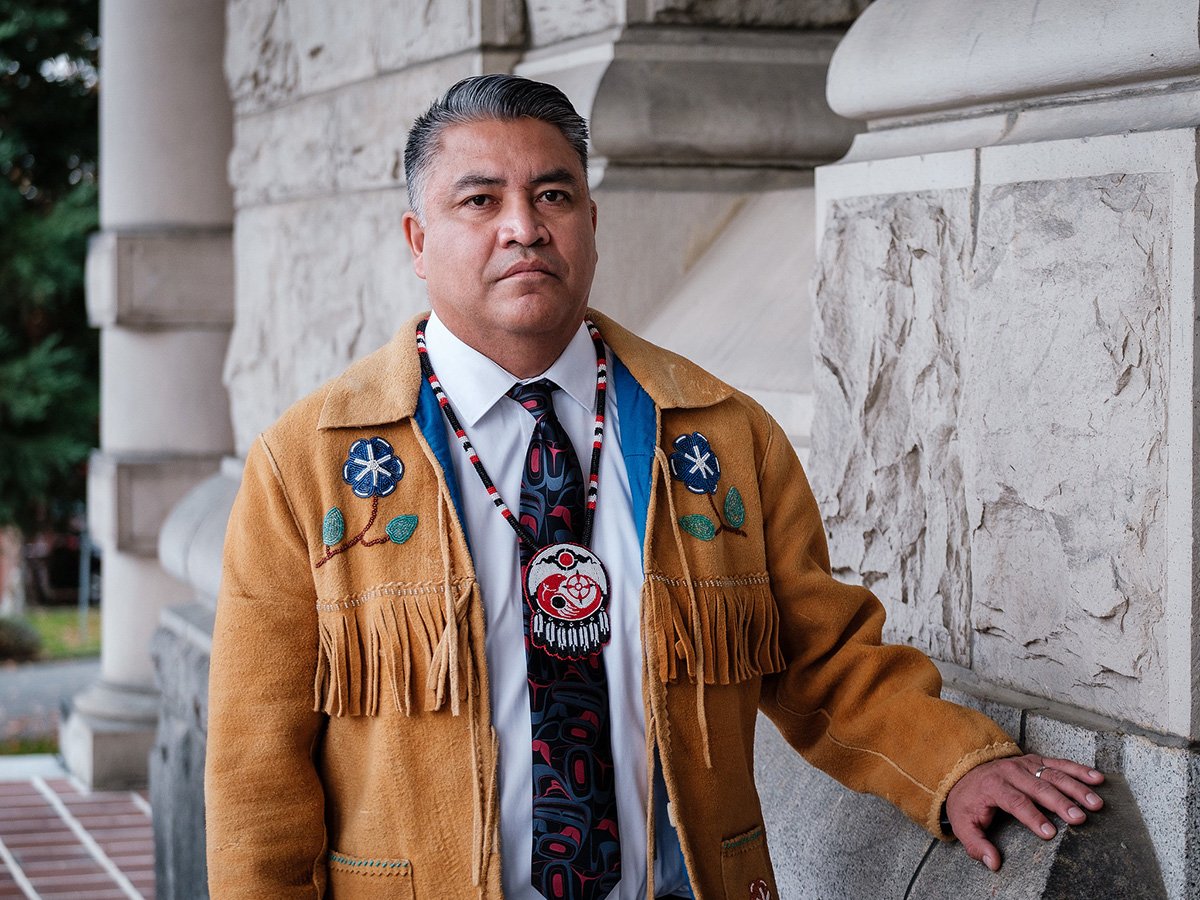Indigenous leaders are calling on Premier John Horgan to immediately implement all recommendations in what they describe as an “appalling” report about systemic racism in B.C.’s health-care system.
“There is no time to wait,” said the First Nations Leadership Council, which includes the BC Assembly of First Nations, First Nations Summit and Union of BC Indian Chiefs in a news release today.
“The current COVID-19 pandemic necessitates constant engagement by First Nations with the health-care system, and we categorically demand a safe health-care system for our people at this time and going forward.”
The investigation was launched in June when Health Minister Adrian Dix announced allegations staff had made a “game” of guessing blood-alcohol levels of Indigenous patients in B.C. emergency rooms. He appointed Mary Ellen Turpel-Lafond, former B.C. representative for children and youth, to examine the allegations.
Turpel-Lafond said today she found “no evidence of an organized game as originally depicted,” but the investigation found “much more widespread and insidious problems.”
“What I found is that at point of care there was direct prejudice and racism touching all points of care and impacting Indigenous people in B.C.,” she said.
The 236-page report, which includes 24 recommendations, came with a trigger warning from Turpel-Lafond.
It cited a lack of cultural safety and hundreds of examples of prejudice and racism in the province’s health-care system, including Indigenous patients being denied pain medication, staff neglect resulting in death, and patients in medical distress who were assumed to be intoxicated by medical staff.
The review found that 84 per cent of Indigenous respondents reported some form of discrimination while accessing health care, and 52 per cent of Indigenous health-care workers reported experiencing racial prejudice at work. More than one-third of non-Indigenous health-care workers personally witnessed racism or discrimination toward Indigenous patients. In addition, 13 per cent of health-care workers made racist comments in the survey, according to investigators.
BC Assembly of First Nations Regional Chief Terry Teegee said the findings aren’t surprising.
“We have known for years that the health-care system in this province treats First Nations people with disrespect and discrimination. Now, thanks to Mary Ellen Turpel-Lafond and her team, we have the proof of this deep-seated, systemic and horrific racism within the health-care system,” Teegee said in the news release.
He urged the province to immediately engage with First Nations leadership “to shape a way forward” and to support, inform and direct those in leadership to create cultural safety and a strong Indigenous human rights foundation within the system.
“It’s time that the B.C. government takes hard and urgent action to enforce Indigenous peoples’ right to safety, dignity and respect when seeking medical assistance,” Teegee said.
Green Leader Sonia Furstenau said she hopes the report leads to an active response by government.
“It’s devastating what’s in this report. It’s heartbreaking to hear what people have gone through,” said Furstenau, who has previously spoken out about systemic racism in the child welfare system.
“So, I’m not surprised. I’m devastated, I’m heartbroken, and I’m grateful to the people that are coming forward and speaking up right now,” she said. “I’m more determined than ever that this government, this institution, that government institutions in this province come to grips with the fact that systemic racism is dominant in too many of our government systems.”
Dix apologized immediately for the treatment of Indigenous people in the province’s health-care system.
“I want to make an unequivocal apology as the minister of health to those who have experienced racism in accessing health-care services in British Columbia now and in the past,” he said. “My apology today is an acknowledgement of the pain that Indigenous people have borne from racism.”
Dix added that the apology is a first step, and he is recommending Premier John Horgan begin to work immediately on government’s response to the findings.
Dix said five additional Indigenous liaison positions will be added immediately in each health authority and that Dawn Thomas, currently a vice-president responsible for Indigenous health and diversity at Vancouver Island Health Authority, would be seconded to lead a task force to implement the recommendations.
“I’ll be directing the Ministry of Health to fully engage in working on all recommendations in the report with our Indigenous governance partners,” Dix said.
Furstenau said Dix’s promise to move forward immediately is “a start.”
“I think that the enormity of this is going to require more than that from him and from the premier, quite frankly,” she said. “It’s going to take the leadership of the premier to recognize, acknowledge and take action on how to begin to address the systemic racism — particularly where [Turpel-Lafond] identifies it: education, the justice system, the child welfare system and health care — and not wait until the next devastating story.”
The Green party is calling on the province to immediately convene an all-party anti-racism committee and introduce whistle-blower legislation that applies to the health-care system.
The government should immediately create an Indigenous ombudsperson position to allow people to share their experiences of systemic racism, Furstenau said.
Furstenau said complaints of racism are now handled internally by the ministry and outcomes are “deeply unsatisfactory.”
In a response posted by First Nations health organizations in the province, the First Nations Health Council, First Nations Health Authority and Health Directors Association acknowledged the courage of those who shared their stories for the investigation.
“We expect our partners to stand with us today in declaring zero tolerance of racism and commit to holding the people and systems perpetuating racism in health care accountable,” the joint statement said.
“The individual experiences outlined in this report — stories of people dying in hospital beds or sick at home because they’re too afraid to get help — are unacceptable. While this review was underway, we continued to hear stories of people experiencing racism when accessing health care — even during the dual public health emergencies of the COVID-19 pandemic and the opioid crisis.”
Union of BC Indian Chiefs Grand Chief Stewart Phillip, who has been undergoing treatment within the system as he prepares for a kidney transplant, said victims of systemic racism should no longer be silenced by a culture of indifference and negligence.
“These are the voices of our families and our relatives and they have to be heard,” Phillip said in a news release. “We need to use this report as a stepping-stone to change. We need to implement the recommendations and, importantly, we need to raise our voices loud and clear to call out those complicit in allowing racism to endanger and, in some cases, irreparably harm Indigenous lives.
“You have to go to the hospital sometimes, and it has to be safe for all British Columbians, including First Nations.” ![]()
Read more: Indigenous, Health, BC Politics
















Tyee Commenting Guidelines
Comments that violate guidelines risk being deleted, and violations may result in a temporary or permanent user ban. Maintain the spirit of good conversation to stay in the discussion.
*Please note The Tyee is not a forum for spreading misinformation about COVID-19, denying its existence or minimizing its risk to public health.
Do:
Do not: